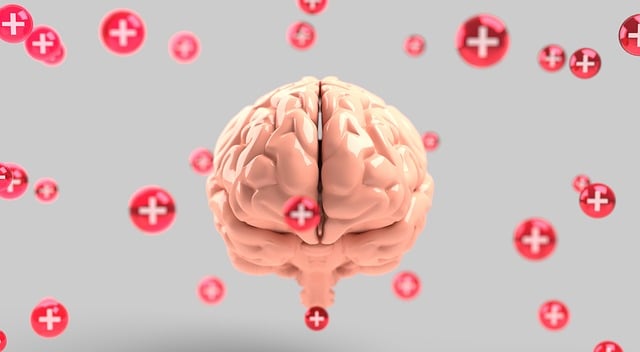Mental health advocacy, particularly through organizations like Centennial Terminal Illness Therapy (CTIT), is revolutionizing care for individuals facing psychological challenges, especially those with terminal illnesses. CTIT's innovative approach combines emotional intelligence development, mood management, and resilience building, offering personalized support, therapeutic services, and educational programs. By demystifying mental health issues via awareness campaigns and support groups, these initiatives encourage early intervention and reduce stigma. Through its comprehensive sessions, podcast series, and community outreach, CTIT enhances emotional wellness, fosters self-reliance, and provides accessible trauma support, ultimately transforming societal attitudes towards terminal illness care.
Mental health advocacy initiatives are vital in shaping public perception and improving support systems. This article explores the multifaceted approach to promoting mental wellness, highlighting key strategies and global success stories. We delve into ‘Understanding Mental Health Advocacy’ and its role in fostering inclusive communities. Additionally, we examine innovative practices like Centennial Terminal Illness Therapy, showcasing unique approaches to care. By analyzing impact and lessons learned, this piece offers valuable insights for effective advocacy campaigns.
- Understanding Mental Health Advocacy: A Necessary Conversation
- The Impact of Initiatives in Raising Awareness and Reduce Stigma
- Centennial Terminal Illness Therapy: A Unique Approach
- Strategies for Effective Mental Health Advocacy Campaigns
- Global Success Stories: What Works and Lessons Learned
Understanding Mental Health Advocacy: A Necessary Conversation

Mental health advocacy is a vital conversation that demands our attention, especially in today’s fast-paced world where mental well-being often takes a back seat to relentless schedules and societal pressures. It involves raising awareness, challenging stigma, and promoting access to quality care for individuals grappling with various psychological challenges. This initiative is crucial, as it seeks to ensure that everyone, regardless of their background or circumstances, can receive the support they need for their mental health.
Centennial Terminal Illness Therapy serves as a beacon of hope in this advocacy journey by focusing on Inner Strength Development, Mood Management, and Resilience Building. These aspects are integral to helping individuals navigate through tough times, fostering self-reliance, and enabling them to lead fulfilling lives despite the challenges they may face. By engaging in advocacy, we create a more compassionate society that prioritizes mental health, ensuring that resources and support systems are readily available for those who need them most.
The Impact of Initiatives in Raising Awareness and Reduce Stigma

Mental health advocacy initiatives play a pivotal role in shaping public perception and fostering understanding. Through various campaigns, awareness programs, and support groups, these initiatives work towards demystifying mental health issues, encouraging open conversations, and promoting early intervention. By using platforms like social media and community events, they reach out to diverse audiences, ensuring that everyone, regardless of background, has access to information and resources.
The impact is profound: stigma begins to dissipate as people gain insights into the complexities of mental health, leading to increased empathy and support. Organizations like Centennial Terminal Illness Therapy exemplify this shift by offering not just therapy but also educational programs focused on emotional intelligence and inner strength development. Additionally, trauma support services become more accessible, helping individuals heal and rebuild their lives, ultimately reducing the burden of mental health challenges in society.
Centennial Terminal Illness Therapy: A Unique Approach

Centennial Terminal Illness Therapy (CTIT) offers a unique and innovative approach to addressing mental health challenges, particularly for individuals facing terminal illnesses. This therapeutic model goes beyond traditional treatment methods by integrating emotional intelligence and mind over matter principles into its core practice. CTIT recognizes that managing a serious illness can profoundly impact one’s mental wellness, and as such, it provides personalized support tailored to each patient’s specific needs.
Through a series of comprehensive sessions, the therapy encourages patients to develop coping strategies that enhance their overall mental wellness. The Mind Over Matter Principles are at the heart of this process, teaching individuals how to reframe their mindset and cultivate resilience in the face of adversity. CTIT also includes the production of a Mental Wellness Podcast Series, offering practical insights and inspiring stories from those who have navigated similar journeys. This multi-faceted approach ensures that patients not only receive professional therapy but also gain access to a supportive community and valuable resources, contributing to improved emotional intelligence and mental wellness outcomes.
Strategies for Effective Mental Health Advocacy Campaigns

Mental health advocacy initiatives are a powerful tool for raising awareness and promoting support for individuals facing mental health challenges. When designing effective campaigns, it’s crucial to employ strategies that resonate with diverse audiences. One key approach is to personalize stories of recovery and resilience, allowing individuals with personal experiences to share their journeys. This strategy not only fosters empathy but also provides hope and inspiration.
Additionally, integrating accessible resources like online Self-Awareness Exercises and Emotional Regulation techniques into advocacy materials can empower people to take proactive steps towards their mental wellness. The development of Mental Wellness Coaching Programs tailored to various needs further enhances these efforts. By combining compelling narratives with practical tools, such as those offered by Centennial Terminal Illness Therapy, advocates can drive meaningful conversations and encourage individuals to seek the help they deserve.
Global Success Stories: What Works and Lessons Learned

Mental health advocacy initiatives worldwide have produced notable success stories, offering valuable insights and lessons for those striving to improve access to care. One such example is the work done by organizations focused on terminal illness therapy, like Centennial Terminal Illness Therapy (CTIT). CTIT has successfully advocated for enhanced support systems and improved quality of life for individuals facing life-limiting conditions through a multi-faceted approach involving psychotherapy, support groups, and family counseling.
Their strategies include community outreach programs that raise awareness about mental health challenges associated with serious illnesses, focusing on both patients and caregivers. CTIT also conducts Stress Management Workshops designed to equip participants with coping mechanisms, thereby fostering Self-Esteem Improvement. These initiatives have not only led to better management of symptoms but also promoted resilience among individuals navigating these challenging circumstances. The organization’s success underscores the power of advocacy in reshaping societal attitudes towards mental health and ensuring that even those facing terminal illnesses receive holistic support tailored to their unique needs.
Mental health advocacy initiatives, such as Centennial Terminal Illness Therapy, play a pivotal role in shaping a more compassionate and understanding society. By raising awareness and challenging stigma, these campaigns empower individuals to seek help without fear of judgment. The global success stories highlighted in this article underscore the impact of targeted strategies, demonstrating that through collective efforts, we can foster inclusive communities that prioritize mental well-being for all.











